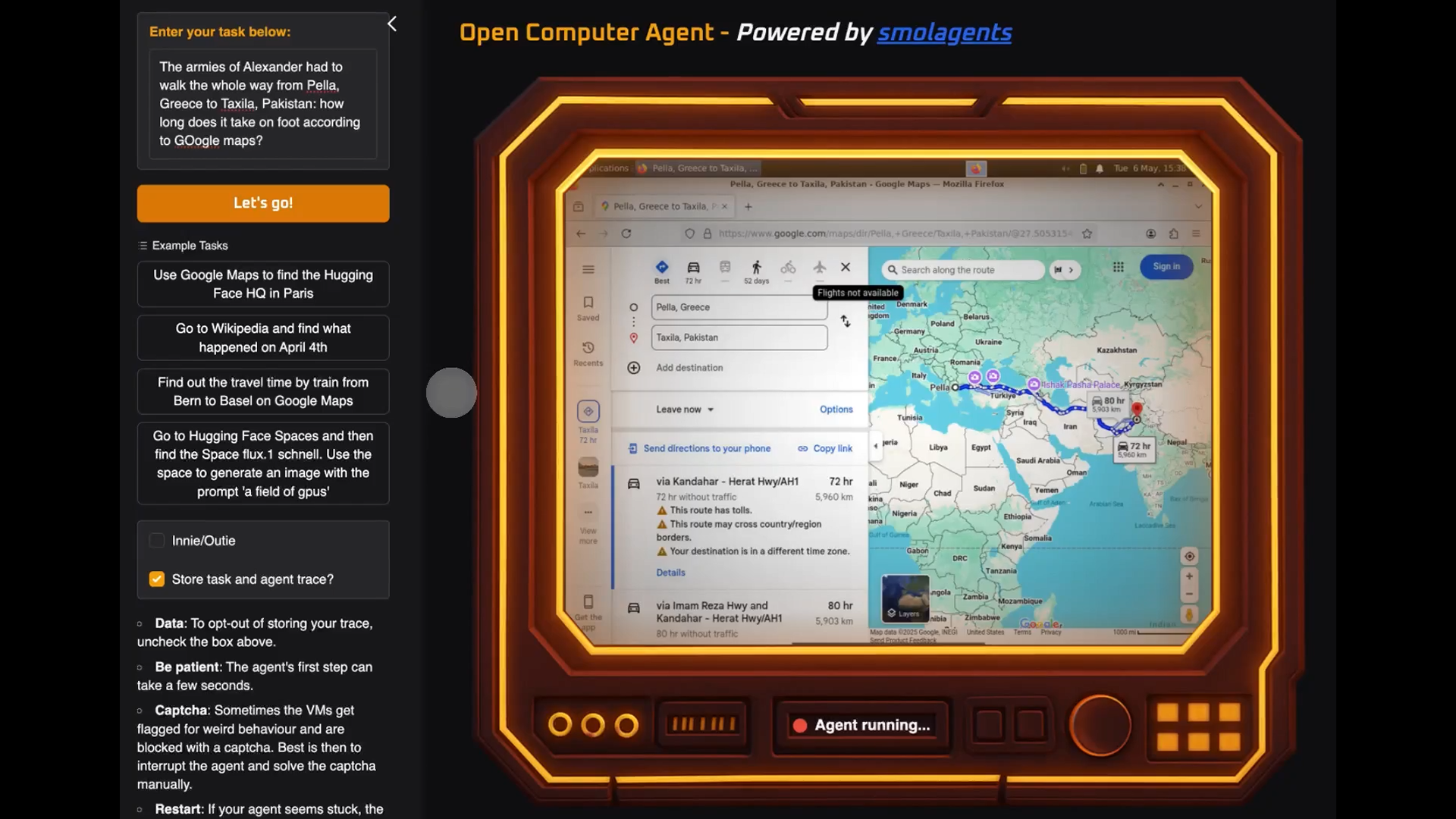Hugging Face Launches Open Source AI Web Assistant Capable of Browsing and Form Completion
Hugging Face releases an open-source AI agent that navigates the web and handles tasks autonomously without user input.
Hugging Face has unveiled its Open Computer Agent, a new AI tool designed to autonomously navigate the web and perform tasks such as filling out forms, clicking buttons, and retrieving information—all without human intervention. The tool is part of the company's smolagents initiative and is available as an open-source demo, though high demand has led to occasional delays.
Key Features
- Human-like Interaction: The AI operates a virtual mouse and keyboard to interact with websites, mimicking human behavior.
- Task Execution: Capable of completing tasks like finding directions on Google Maps, booking tickets, and checking store hours.
- Open-Source: Developers can inspect, modify, and build upon the code for specialized use cases.

Comparison to Other AI Agents
The Open Computer Agent joins a growing list of AI tools like OpenAI's Operator, Browser Use, and Opera's Browser Operator. Unlike some proprietary solutions, Hugging Face's offering emphasizes transparency and community-driven development.
Limitations
- Demo Constraints: The current version is a proof-of-concept and may require manual intervention for logins or CAPTCHAs.
- Performance Issues: High traffic has caused delays and errors in the live demo.
Future Potential
While still in early stages, the Open Computer Agent represents a significant step toward mainstream AI-driven web automation. Its open-source nature could accelerate innovation in the space, much like AI image generators have evolved.
For more details, check out the announcement tweet.
Related News
AWS extends Bedrock AgentCore Gateway to unify MCP servers for AI agents
AWS announces expanded Amazon Bedrock AgentCore Gateway support for MCP servers, enabling centralized management of AI agent tools across organizations.
CEOs Must Prioritize AI Investment Amid Rapid Change
Forward-thinking CEOs are focusing on AI investment, agile operations, and strategic growth to navigate disruption and lead competitively.
About the Author

David Chen
AI Startup Analyst
Senior analyst focusing on AI startup ecosystem with 11 years of venture capital and startup analysis experience. Former member of Sequoia Capital AI investment team, now independent analyst writing AI startup and investment analysis articles for Forbes, Harvard Business Review and other publications.